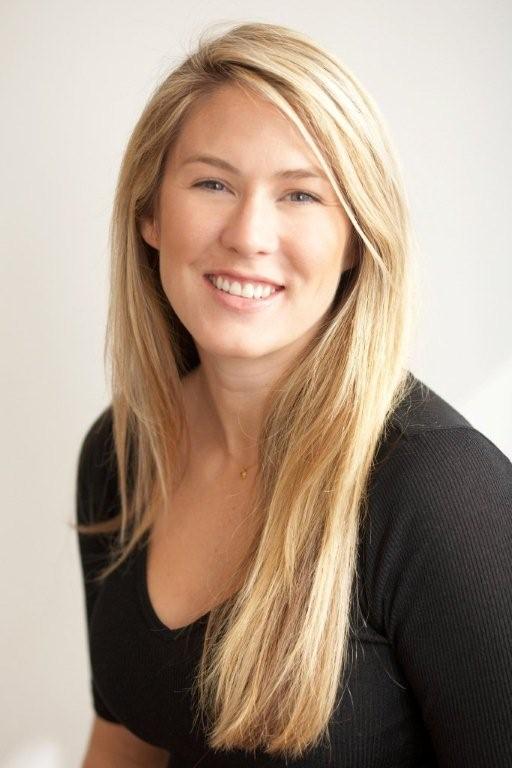Adelaide Lancaster is a co-founder, with Amy Abrams, of In Good Company, and she loves her job. She excels at making business ideas a reality and helping businesses grow to their potential. She founded In Good Company to respond to the isolation many women business owners feel. Membership provides women entrepreneurs with professional peers, events, learning opportunities, and a variety of office space solutions. Through programming and content IGC is committed to helping teach women entrepreneurs the business of running a business. It is located in the flatiron district in New York. She can be found on twitter at @ingoodcmpny.
1. What do you love about your job?
What I love about being an entrepreneur, hands down, is the autonomy and creativity. I get to determine how to spend my time and resources and it’s incredibly motivating to chart your own path.
What I love about my specific job is the variety of tasks that I get to do, all the interesting and smart people that I get to meet, and the wide range of information that I am exposed to. I find businesses and the different ways they go about doing their business fascinating –people are so creative. And the best thing about working with entrepreneurs is that they all get to be themselves in their business. I’m not in a position where I am interacting with a lot of square pegs in round holes–it’s refreshing!
2. Did you always know this was the job or career path for you?
No! My graduate training is actually in counseling psychology. I thought I wanted to be a therapist but I was awful! It was a great lesson in the difference between being really interested in learning about a subject and actually doing the work. The truth was that I was a bit too introverted for all-day, everyday patient contact and I was also a bit too impatient! I like helping my current clients move forward by mapping out action steps and learning best practices.
I added a degree in organizational psychology, which was a better fit because the work is really about helping groups and organizations to improve their performance and make good decisions about their business. But it was a book by Bo Burlingham called Small Giants that turned me onto small business and then ultimately made me want to become an entrepreneur. He profiles all these “hidden gem” small businesses who all chose at some point to be “great instead of big”. I am inspired and motivated by the integrity of these businesses.
3. What are the most important lessons you have you learned along the way?
- Learn to be comfortable delegating. Everyone suffers when you try to do everything AND you also cut yourself off from the valuable thoughts, insights, and perspectives of others.
- Surround yourself with others as there is a HUGE cost to isolation–there are lots of ways to create meaningful relationships with others, it doesn’t require being a social butterfly or “networking” in the traditional sense.
- Solicit feedback all the time–contrary to the fears of many, people won’t steal your idea and instead will give you great suggestions. It will get you further faster. You generally end up creating a lot more work for yourself if you hold all your cards close to your chest.
- Only work with lawyers who have the expertise that you need. You probably can’t one-stop shop and while it is a hassle to seek out new people all the time it is more than worth it to work with the right person.
- A great accountant is a critical component of any business.
4. Tell us about a defining moment for you related to your work.
Two things come to mind:
I have had defining moments each time I sign a lease. It cements the long-term plan of the business and reaffirms my commitment to it. Because our business is quite physical, we have had a lot of “wow, this is real” type moments as we have grown and developed. If you have a business that has less overhead and infrastructure I suggest looking for ways to capture your “wow, this is real” type moments–they are important!
It was also a defining moment to get a book deal this year! We are thrilled to be writing a book on women entrepreneurs for Penguin and it affirmed a lot of the work that my partner Amy and I have been doing over the last 7 years that had, until that moment, felt less tangible–platform-building, article-writing, conversations, reading, etc.
5. What advice do you have for people looking to find work they love, in your field, or any field?
It sounds simple, but know what is important to you and what YOUR definition of success is. Sometimes people fall into a path because it provides an answer or temporary clarity without doing the hard work required to find out what is most important to them. I’m a big believer in creating solutions that work for you–and that doesn’t mean that you have to be an entrepreneur but it does mean that you might need to be creative about finding the right options. I also believe that for most people there isn’t just one right answer–there are probably lots of options for each of us that would fulfill our needs well, so don’t waste time beating yourself up if you haven’t found your “passion” or “calling”.











Very inspiring and very impressive article. These are characteristics I aspire to. In a world of mediocrity, Adelaide really stands out, indeed she is a true champion who puts herself “In Good Company.” I’m going to check her site out and learn more. Thanks for sharing.
Ooooh, thanks Nicole – what a treat to get to read an interview with Adelaide, am such a fan of her work. Question number three in particular resonated with me. As an introverted entrepreneur, Adelaide’s point about not staying isolated rings so true. Vital to put ourselves out there in an authentic way. And of course the personal finance junkie in me is cheering at the point about how being every solid business there is a solid accountant. Go Adelaide & Go team LYJ!